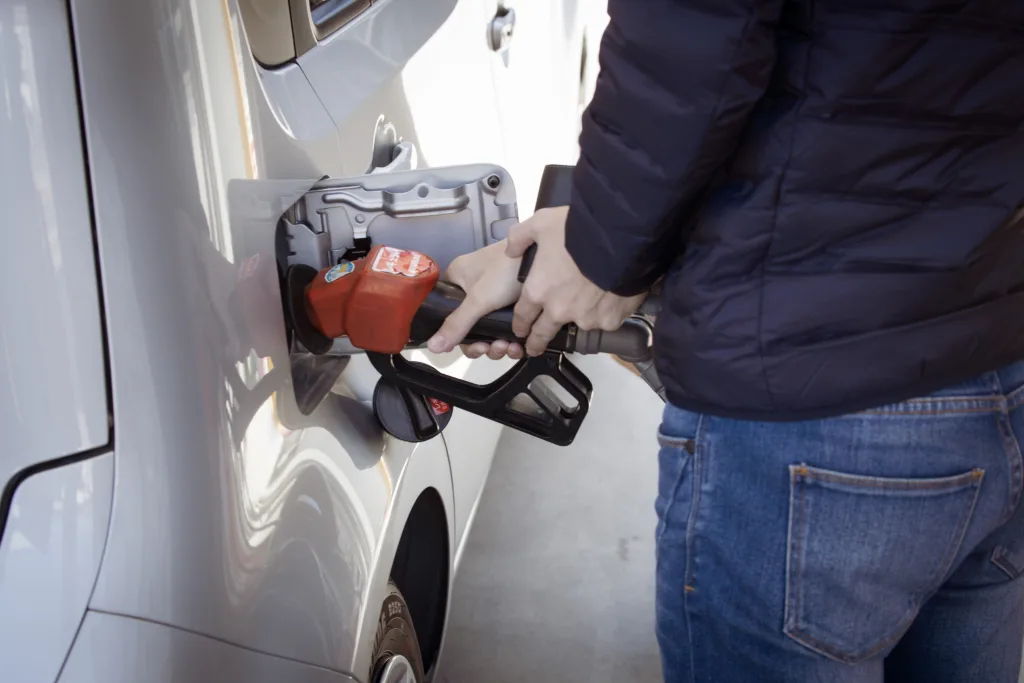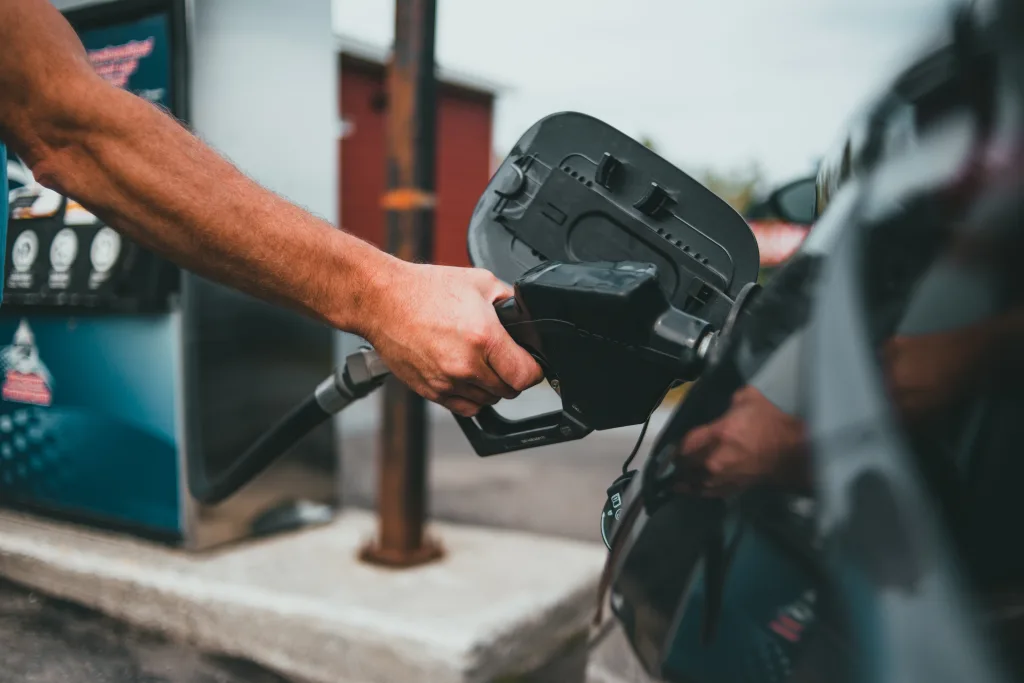Diesel engines have long been known for their efficiency and durability. These engines are designed to run on diesel fuel, which is a type of fuel derived from crude oil. But what happens if you accidentally put a little gas in your diesel tank? Will it harm your engine?
The short answer is yes, it can cause significant damage to your diesel engine. While a small amount of gas, say 10% to 15%, may not immediately ruin your engine, it can still have harmful effects in the long run.
One of the main components at risk of damage is the high-pressure rail pump found in modern common-rail engines. This pump is responsible for delivering fuel to the injectors at extremely high pressures. It relies on the diesel fuel’s lubricating properties to operate smoothly. When you introduce gas into the diesel tank, you disrupt the fuel’s molecular balance and reduce its flashpoint.
This change in fuel composition can lead to a phenomenon called premature ignition. Premature ignition occurs when the fuel ignites before it’s supposed to, causing uncontrolled combustion. This can result in excessive pressure and temperature inside the engine, leading to potentially catastrophic damage.
Furthermore, diesel fuel not only acts as a source of energy for the engine but also serves as a lubricant for various components. Gasoline, on the other hand, lacks the lubricating properties necessary for proper engine operation. When you mix gasoline with diesel, you risk damaging the fuel injector pump, which relies on the lubricating properties of diesel fuel to function correctly.
It’s important to note that diesel and gasoline engines are designed to run on their respective fuels and are not interchangeable. Diesel fuel is too thick for a gasoline’s fuel pump system, while gasoline creates too large of an explosion for a diesel engine to handle.
It is crucial to use the correct fuel for your engine. Putting gas into a diesel engine can have severe consequences, including damage to the high-pressure rail pump and fuel injector pump. The molecular imbalance and reduced flashpoint of the fuel can cause premature ignition and other detrimental effects. To avoid expensive repairs and potential engine failure, always double-check that you’re using the right fuel for your diesel engine.
Will 3 Gallon Of Gas Hurt A Diesel Engine?
Using 3 gallons of gasoline in a diesel engine can potentially cause damage. Diesel engines are designed to run on diesel fuel, which has different properties than gasoline. Gasoline has a lower flash point and ignition temperature, so when it is used in a diesel engine, it can cause pre-ignition or knocking, leading to potential engine damage.
Here are a few reasons why using gasoline in a diesel engine can be harmful:
1. Combustion Differences: Gasoline and diesel fuel have different combustion characteristics. Gasoline requires a spark to ignite, while diesel fuel ignites through compression. Using gasoline in a diesel engine can lead to improper combustion, causing damage to engine components.
2. Lubrication Issues: Diesel fuel acts as a lubricant for various engine components, such as fuel injectors and pumps. Gasoline does not provide the same lubricating properties, which can result in increased wear and tear on these components.
3. Fuel System Damage: Diesel engines have high-pressure fuel systems, and gasoline can damage the seals, gaskets, and hoses designed to handle diesel fuel. Over time, this can lead to fuel leaks or even fuel system failure.
4. Emissions and Exhaust System: Gasoline has different emission characteristics compared to diesel fuel. Using gasoline in a diesel engine can result in increased emissions, potentially causing damage to the exhaust system, such as the catalytic converter.
Therefore, it is crucial to use the appropriate fuel for a diesel engine, which is diesel fuel. Using gasoline even in small quantities can have detrimental effects on the engine’s performance, efficiency, and longevity.

What Happens If You Accidentally Put Gas In A Diesel?
When gas is mistakenly put into a diesel tank, it can have serious consequences for the vehicle. Here are the potential effects:
1. Fuel Molecular Balance: Diesel and gasoline have different molecular structures, which affects their combustion properties. By adding gas to a diesel tank, you disrupt the fuel’s molecular balance and composition.
2. Flashpoint Reduction: The flashpoint refers to the temperature at which fuel ignites. Gasoline has a lower flashpoint than diesel, meaning it ignites more easily. Mixing gasoline with diesel reduces the overall flashpoint of the fuel in the tank.
3. Premature Ignition: With a lower flashpoint, the fuel mixture becomes more prone to premature ignition. This can cause the engine to ignite fuel too early in the combustion cycle, resulting in knocking, pinging, or even engine damage.
4. Incomplete Combustion: Gasoline and diesel burn differently. Diesel relies on compression ignition, while gasoline relies on spark ignition. When gasoline is introduced into a diesel engine, it can lead to incomplete combustion, resulting in poor performance, reduced power, and increased emissions.
5. Fuel System Damage: Gasoline has solvent properties that can damage certain components of a diesel fuel system. Over time, this can lead to corrosion of fuel lines, injectors, and other crucial parts, potentially resulting in expensive repairs.
6. Engine Misfiring: The mixture of gasoline and diesel can cause the engine to misfire or run unevenly. This can lead to rough idling, poor acceleration, and decreased overall engine performance.
7. Potential Engine Failure: In severe cases, the damage caused by using gas in a diesel engine can be so significant that it leads to engine failure. This may require a complete engine rebuild or even replacement.
It is crucial not to start the vehicle if you have accidentally filled up with gas instead of diesel. Instead, contact a professional mechanic or roadside assistance to have the fuel drained and the system properly cleaned before attempting to start the engine again.
Please note that the specific consequences may vary depending on the amount of gas added, the vehicle’s make and model, and other factors. It is always best to consult with a professional for a thorough assessment and repair.
Can Half A Gallon Of Regular Gas In Diesel Car Ruin The Car?
Putting half a gallon of regular gas into a diesel car can potentially cause damage to the vehicle. Diesel fuel and regular gasoline have different chemical compositions and properties. Diesel fuel is designed to be used in diesel engines, which have fuel injector pumps that rely on the lubricating properties of diesel fuel to function properly.
When regular gasoline is added to a diesel vehicle, it can lead to several problems:
1. Lubrication Issues: Diesel fuel acts as a lubricant for the fuel injector pump. Gasoline lacks the same lubricating properties, which can cause increased friction and wear on the pump. Over time, this can lead to pump failure or damage.
2. Combustion Problems: Diesel engines operate on the principle of compression ignition, where the fuel-air mixture is compressed until it reaches a temperature high enough to ignite the diesel fuel. Gasoline has a lower ignition temperature compared to diesel fuel, which can lead to premature ignition or knocking in the engine. This can cause damage to the engine components, such as the pistons and valves.
3. Fuel System Issues: Gasoline has different chemical properties compared to diesel fuel, which can affect the fuel system components. Gasoline can deteriorate certain seals and gaskets in the fuel system, leading to leaks and potential fuel contamination.
4. Performance and Efficiency Impact: Mixing gasoline with diesel fuel can also affect the overall performance and efficiency of the vehicle. The engine may experience reduced power, decreased fuel efficiency, and potentially emit more harmful emissions.
Adding even a small amount of regular gas to a diesel car can have detrimental effects on the fuel system, engine components, and overall performance. It is crucial to use the appropriate fuel for your vehicle to avoid potential damage and costly repairs.
Can You Mix A Little Diesel With Gas?
It is not recommended to mix diesel with gasoline. Diesel and gasoline have different properties and mixing them can lead to several issues. Here are some reasons why you should not mix them:
1. Different combustion properties: Diesel and gasoline have different ignition properties. Mixing them can cause improper combustion, leading to engine misfires, reduced performance, and potential damage to the engine.
2. Fuel system damage: Diesel fuel is thicker and has lubricating properties, while gasoline is thinner and lacks lubrication. Mixing diesel with gasoline can cause damage to fuel pumps, injectors, and other components of the fuel system due to the mismatch in lubrication properties.
3. Increased emissions: Mixing diesel with gasoline can result in increased emissions of harmful pollutants, as the combustion characteristics of the fuel mixture may not be optimal. This can contribute to air pollution and harm the environment.
4. Safety concerns: Mixing diesel with gasoline can create a more volatile fuel mixture. Gasoline is highly flammable, and the addition of diesel can increase the risk of fire or explosion.
To ensure proper functioning and safety of your vehicle, it is best to use the appropriate fuel for your engine. If you accidentally add diesel to a gasoline engine or vice versa, it is advisable to drain the fuel completely and refill with the correct fuel type.

Conclusion
Diesel engines are a complex and sophisticated piece of machinery that require specific fuel to operate efficiently. Mixing gasoline with diesel fuel can have severe consequences, especially for modern common-rail engines. The high-pressure rail pump, which relies on the diesel flow for lubrication, is at the highest risk of damage when gasoline is introduced into the system.
The molecular balance of the fuel is instantly thrown off when gas is added to the diesel tank, resulting in a reduced flashpoint and potential premature ignition. This can lead to significant damage to the vehicle and its components. Additionally, diesel not only acts as a fuel but also as a lubricant for the engine. The introduction of gasoline can cause harm to the fuel injector pump, further compromising the engine’s performance.
It is important to note that diesel and gasoline engines are not compatible with each other’s fuel. The viscosity of diesel is too thick for a gasoline engine’s fuel pump system, while the explosive nature of gasoline is too much for a diesel engine to handle. These engines are designed and optimized to run on their respective fuels, and using the wrong fuel can have disastrous consequences.
In order to ensure the proper functioning and longevity of your diesel engine, it is essential to use only diesel fuel and avoid any contamination with gasoline. Following the manufacturer’s guidelines and recommendations for fuel type is crucial to avoid costly repairs and potential engine failure. By understanding the importance of using the correct fuel, you can protect your diesel engine and enjoy its benefits for years to come.
